Kiwifruit has different types such as green, gold, and red. Each one of them has different Kiwi, also known as Chinese gooseberry, which is native to China’s Chang Qiang Valley and back to the late 19th century. Kiwi is the national fruit of China. The Chinese used to make tonics from this fruit which shows kiwi is so nutritious! However, it was the New Zealanders who discovered the potential of this juicy and delicious fruit. They started planting kiwis for commercial purposes. The New Zealanders named their national bird – kiwi – on the fruit. A few years later, in 1963, this fluffy fruit was first introduced to India. According to researchers, kiwifruit cultivation began in the Shimla region and then spread throughout the country. Currently, China, New Zealand, Italy, Greece, Chile, and France are the top kiwi growers in the world. Kiwi flesh has a light green color and a distinct and strong taste (a combination of sweet, sour, spicy, light, and acidic). This taste reminds you of a combination of lemon, orange, honey melon, and strawberry. This fruit has many black seeds that give a crunchy texture to this delicious fruit. Kiwi is a source of serotonin, which helps improve sleep. A research study in this field has shown that consuming kiwi helps you to have good quality sleep. Kiwi consumption also prevents insomnia.  Kiwi contains large amounts of flavonoids such as quercetin, rutin, catechin, and epicatechin, which contribute to sleep quality. Due to facts, kiwi skin is a powerful element to help you sleep better. Kiwi is one of the most delicious fruits available, which has even more vitamin C than oranges. And of course, the ingredients in it are not limited to this vitamin and will have many benefits for the health of the body. This is a green fruit with rough skin that has a lot of taste and can be useful for our health in any way. The taste is usually spicy and sweet, and depending on the taste of people, some prefer it ripe and some a little firmer and rougher. Because its ripe state has a completely smooth taste and its raw state has a sour taste, today kiwi is not only used as fresh fruit. And it is also used in a variety of snacks such as dried fruit, desserts, jellies or jams, and delicious smoothies. Is it better to eat kiwi with skin or without it? If you do not have a problem with eating kiwi with or without skin, it is recommended to eat this fruit with the skin. Because most of the vitamin E is found in the skin of the kiwi.
Kiwi contains large amounts of flavonoids such as quercetin, rutin, catechin, and epicatechin, which contribute to sleep quality. Due to facts, kiwi skin is a powerful element to help you sleep better. Kiwi is one of the most delicious fruits available, which has even more vitamin C than oranges. And of course, the ingredients in it are not limited to this vitamin and will have many benefits for the health of the body. This is a green fruit with rough skin that has a lot of taste and can be useful for our health in any way. The taste is usually spicy and sweet, and depending on the taste of people, some prefer it ripe and some a little firmer and rougher. Because its ripe state has a completely smooth taste and its raw state has a sour taste, today kiwi is not only used as fresh fruit. And it is also used in a variety of snacks such as dried fruit, desserts, jellies or jams, and delicious smoothies. Is it better to eat kiwi with skin or without it? If you do not have a problem with eating kiwi with or without skin, it is recommended to eat this fruit with the skin. Because most of the vitamin E is found in the skin of the kiwi.  What are the benefits of kiwi juice with lemon?
What are the benefits of kiwi juice with lemon?
- Strengthens the human body’s immune system and thus fights infection with many diseases, the most important of which are colds, flu, and colds.
- Effectively improves digestion, because it contains a lot of soluble fiber and helps absorb nutrients from foods, thus reducing fat storage in different areas of the body. It lowers cholesterol in the body, thus maintaining cardiovascular health and preventing many different breast diseases. Effectively regenerates dead skin cells and prevents the signs of aging. It also moisturizes the skin and protects it from dehydration and cracking, and increases collagen production. Lemon and kiwi juice also contain very high percentages of vitamins C and E. It acts as a natural laxative for the intestines, so it is the best juice for people suffering from constipation and intestinal disorders. Cleanses the body of toxins and wastes that may have accumulated inside.
- While regulating blood circulation, rid the body of laziness and lethargy. Treats cough in adults and children, especially if taken daily and regularly.
- Due to having the element of copper, which preserves the natural color of the hair, strengthens and nourishes the hair, and in addition to protecting the health of the hair and scalp, prevents premature whitening.
- Sterilizes and disinfects the mouth and maintains the health of the gums.
- Strengthens nails, prevent them from breaking, and maintains their strength and durability. Prevents nausea and dizziness, so it is preferred by pregnant women to relieve pregnancy symptoms.
- Protection against harmful sun rays; Because it contains different amino acids. Helps balance salt with sodium, as it contains a high percentage of potassium, so the juice is ideal for lowering high blood pressure.
- Due to the availability of powerful antioxidants that protect cell DNA from damage, it prevents various cancerous tumors.
 Recognizing the nutritional value of the kiwi The small kiwi fruit contains a treasure trove of food wonders. Kiwi is an excellent source of vitamin C (ascorbic acid). Some other vitamins such as vitamin A, folate, vitamin E (alpha-tocopherol), and vitamin K are also present in acceptable amounts in kiwi. Kiwi is also high in potassium along with other minerals such as calcium, magnesium, and phosphorus.
Recognizing the nutritional value of the kiwi The small kiwi fruit contains a treasure trove of food wonders. Kiwi is an excellent source of vitamin C (ascorbic acid). Some other vitamins such as vitamin A, folate, vitamin E (alpha-tocopherol), and vitamin K are also present in acceptable amounts in kiwi. Kiwi is also high in potassium along with other minerals such as calcium, magnesium, and phosphorus.
Kiwifruit calories
Kiwifruit is rich in vitamin C and antioxidants, which makes it a fruit such as oranges and lemons and it is low in calories. Today, due to the availability of information on the properties of kiwi in weight loss, this fruit is used in the kiwi slimming diet to achieve fitness. Eating a kiwi daily eliminates about 80% of the body’s need for vitamin C.  This fruit has a high volume of vitamin C and increases the absorption of iron in the body. The presence of vitamin C in the body strengthens the immune system, fights high blood pressure, and prevents various cancers, allergies, and colds. People with iron deficiency are advised to eat kiwi for breakfast. Because kiwifruit is very low in sodium, it is a good option for dieting and weight loss. The diuretic properties of kiwi are an important benefit that points to the need for this fruit in the diet of obese people and people who suffer from constipation. Kiwi is a blood thinner and prevents high blood fats, colds, pancreatitis, and rheumatism. This fruit also contains vitamins A and B, folic acid, zinc, phosphorus, sodium, potassium, chlorine, magnesium, calcium, and sulfate. By consuming kiwi, gastritis and flatulence can be reduced. Kiwi is effective in improving blood circulation.
This fruit has a high volume of vitamin C and increases the absorption of iron in the body. The presence of vitamin C in the body strengthens the immune system, fights high blood pressure, and prevents various cancers, allergies, and colds. People with iron deficiency are advised to eat kiwi for breakfast. Because kiwifruit is very low in sodium, it is a good option for dieting and weight loss. The diuretic properties of kiwi are an important benefit that points to the need for this fruit in the diet of obese people and people who suffer from constipation. Kiwi is a blood thinner and prevents high blood fats, colds, pancreatitis, and rheumatism. This fruit also contains vitamins A and B, folic acid, zinc, phosphorus, sodium, potassium, chlorine, magnesium, calcium, and sulfate. By consuming kiwi, gastritis and flatulence can be reduced. Kiwi is effective in improving blood circulation.  This fruit also has all the beneficial elements for the health of teeth and bones. Green kiwi is very useful for digestion and in fact, this fruit has been used as an effective food digester for many years. Now, the reason for this kiwifruit advantage can be attributed to the presence of the proteolytic enzyme actinidine in its tissue. Research on this fruit in 2010 shows that the actinidine in green kiwi helps digest a variety of proteins and as a healthy diet can support your digestive system. Do not ignore the properties of kiwi for weight loss use this delicious and nutritious fruit in your slimming diet and stay healthy.
This fruit also has all the beneficial elements for the health of teeth and bones. Green kiwi is very useful for digestion and in fact, this fruit has been used as an effective food digester for many years. Now, the reason for this kiwifruit advantage can be attributed to the presence of the proteolytic enzyme actinidine in its tissue. Research on this fruit in 2010 shows that the actinidine in green kiwi helps digest a variety of proteins and as a healthy diet can support your digestive system. Do not ignore the properties of kiwi for weight loss use this delicious and nutritious fruit in your slimming diet and stay healthy.
Kiwifruit gold calories
Kiwifruit is low in carbohydrates and also in calories. Kiwi is a nutrient-rich fruit that is high in nutrients and low in calories. The calorie content of a gold kiwi is an average of 42 calories. Kiwi is well known as healthy food due to its high vitamin C content.  But this fruit is also rich in other nutrients. These may help lower blood pressure, heal wounds, maintain intestine health, and more. You may have heard that kiwi is rich in vitamin C, but in addition, it has incredible nutritional properties. Kiwi calories (61 calories per 100 grams) can provide many of the body’s vital nutrients. A 70 kg person should do 5 minutes of walking to burn 61 calories of kiwi.
But this fruit is also rich in other nutrients. These may help lower blood pressure, heal wounds, maintain intestine health, and more. You may have heard that kiwi is rich in vitamin C, but in addition, it has incredible nutritional properties. Kiwi calories (61 calories per 100 grams) can provide many of the body’s vital nutrients. A 70 kg person should do 5 minutes of walking to burn 61 calories of kiwi.
Kiwifruit Fiber
Nutritionists consider another health benefit of kiwifruit is having fiber and water because fiber helps break down food. And the high amount of water in kiwifruit allows the body to receive enough water which both these factors help to a healthy digestion process. The amount of soluble fiber in kiwi is high and therefore by eating kiwi, bowel, and stomach movements are done more easily and it is effective in preventing and treating constipation. Eat kiwi with breakfast for easy bowel movements. The fiber in kiwi, in addition to helping regulate the digestive system, also provides part of the fiber needed by the body. Kiwi due to its high fiber content causes satiety in the person and can be used in slimming diets. Pour two apples with two kiwis with ice cubes in a blender and mix and drink. This is a delicious drink for you dear ones.  Use the properties of food for fitness and avoid chemical drugs and dangerous diets as much as possible. If you are thinking of losing weight, or are already on a diet, we recommend that you add kiwi to your diet. In fact, there are about 3 grams of fiber per 100 grams of kiwi. A kiwi can be a good snack. Because it satisfies you well and does not allow you to eat cheat meals.
Use the properties of food for fitness and avoid chemical drugs and dangerous diets as much as possible. If you are thinking of losing weight, or are already on a diet, we recommend that you add kiwi to your diet. In fact, there are about 3 grams of fiber per 100 grams of kiwi. A kiwi can be a good snack. Because it satisfies you well and does not allow you to eat cheat meals.
Kiwifruit Enzyme
Kiwi is an edible fruit that is often recommended for ease of digestion It is an excellent source of digestive enzymes, especially a protease called actinidine. This enzyme helps proteins digest and is commercially used to make crispy meat. In addition, kiwi contains many other enzymes that cause the fruit to ripen. Scientists believe that actinidine is one of the reasons that kiwis seem to help digestion. An animal study found that adding kiwi to the diet improved the digestion of beef protein, gluten, and soy in the stomach.  This seems to be due to the actinidine content. Other animal studies analyzed the effects of actinidine on digestion. Some animals were fed kiwifruit with active actinidine and some animals were fed kiwifruit without active actinidine. The results showed that animals that used kiwifruit with active actinidine had better digestion for meat and the meat moved faster through the stomach. Many human-based studies have also shown that kiwi helps with digestion, reduce bloating, and helps relieve constipation. Proteolytic enzymes, especially collagenases, are used for extracellular matrix digestion, cell isolation, and primary culture. Thermolysin and dispase, which are both used to separate the epidermis and dermis, are difficult to obtain from bacterial or animal sources. It is especially important to find alternative proteases to collagenase, thermolysin, and dispase in plant sources that are easier and less expensive to purify and ready to use.
This seems to be due to the actinidine content. Other animal studies analyzed the effects of actinidine on digestion. Some animals were fed kiwifruit with active actinidine and some animals were fed kiwifruit without active actinidine. The results showed that animals that used kiwifruit with active actinidine had better digestion for meat and the meat moved faster through the stomach. Many human-based studies have also shown that kiwi helps with digestion, reduce bloating, and helps relieve constipation. Proteolytic enzymes, especially collagenases, are used for extracellular matrix digestion, cell isolation, and primary culture. Thermolysin and dispase, which are both used to separate the epidermis and dermis, are difficult to obtain from bacterial or animal sources. It is especially important to find alternative proteases to collagenase, thermolysin, and dispase in plant sources that are easier and less expensive to purify and ready to use.  Therefore, we used the enzyme actinidine, which is abundant in kiwi fruit and is the major kiwi protein, to separate the epidermis from the dermis and isolate the epidermal cells. To purify actinidine, several followed steps of centrifugation by ultrafiltration and finally an ion-exchange chromatography column were used.
Therefore, we used the enzyme actinidine, which is abundant in kiwi fruit and is the major kiwi protein, to separate the epidermis from the dermis and isolate the epidermal cells. To purify actinidine, several followed steps of centrifugation by ultrafiltration and finally an ion-exchange chromatography column were used.
Protein in Kiwifruit
When we think of important sources of protein, we often think of animal foods such as red meat, chicken, and fish. But protein-rich vegetables and fruits like kiwifruit can also be used alongside animal proteins to provide amino acids and a variety of proteins. Protein is one of the most important macronutrients for the body, which is used not only in body structure and muscle production but also in the absence of other types of macronutrients, it can be used to provide fuel to the body. That’s why getting enough protein in your diet is so important. Some slimming diets consider protein as the main macronutrient, and by enriching the diet with it, they try to reduce the appetite and also burn more fat. A variety of foods, especially animal foods and legumes, are important sources of protein that provide the body’s greatest need for protein.  These protein sources include the following:
These protein sources include the following:
- White meat such as chicken and fish
- Turkey meat
- A variety of seafood
- Legumes such as beans, lentils, green beans, and soybeans
- Dairy products, especially cream cheese and Greek yogurt
- egg
- Nuts
- Grains
However, protein-rich vegetables and fruits are not on this list. Why do we use fewer protein fruits as protein sources?! The reason for this is that in order to be able to introduce food as a source of protein, it must have at least 6 grams of protein per serving but the protein in vegetables and fruits with protein is very low compared to the above and cannot supply the body’s need for protein per day. Unless you consume a large number of protein fruits, which can also be dangerous to health. Because fruits and vegetables often have a lot of carbohydrates, i.e., sugars such as glucose, fructose, and fiber. If they are consumed in large quantities to provide the protein needed by the body only from vegetables and fruits with protein, It causes elevated blood sugar levels and other problems. Also, the absorption of animal protein in the human gastrointestinal tract is easier. But when meat, eggs, or other sources of protein are harmful to people, they can use protein-rich foods and fruits together to get the protein they need.  Fruits that contain protein:
Fruits that contain protein:
- Prunes: This fruit is one of the sources. Prunes are also known as a rich source of fiber, and in cases of constipation, people can use prunes to regulate the function of their digestive system, and therefore, excessive consumption of prunes causes digestive problems so this protein source cannot be used in high amount daily.
- Apricot: The amount of protein in apricots in a quarter cup of it, is about 1.1 grams, which is more than the amount in prunes. Apricots also contain vitamins such as vitamin A and vitamin C, and the presence of potassium and carotenoids in apricots has made it one of the most high-protein fruits.
- Golden Raisins: Each half cup of golden raisins contains 1.35 grams of protein, which makes it one of the most important protein fruits in the vegetarian diet. Golden raisins are also high in iron and potassium, which is why many nutritionists recommend using golden raisins instead of junk sugar and junk food.
- Kiwifruit: Kiwi gives you about 2 grams of protein per cup and you do not have to spend a lot of time preparing it. Eating its skin against the will of many people is quite good. Just make sure you clean it well, then just slice it and drink it. Its skin does not hurt you. It is also very useful for your stomach and intestines.
Sugar in kiwifruit
kiwifruit, despite having sugar, contains fiber, so its consumption is beneficial for healthy blood sugar. Because kiwifruit’s glycemic index is low, its effect on blood sugar levels is very small. Therefore, kiwi consumption can be useful for diabetics or those who want to lose weight, now consult your doctor and if he agrees to add kiwi to your diet, you can use this fruit full of properties. If you are on a low-carb diet, stick to low-sugar fruits. Most fruits have a low glycemic index (GI). Their sugar is mostly fructose.  However, dried fruits (such as raisins, dates, and cranberries), cantaloupe, and pineapple have moderate GI. Fruits contain a lot of nutrients and if you want to eat sugar, fruit is the best choice. The good news is that low-sugar fruits have the highest levels of nutrients, including antioxidants and other nutrients. On the other hand, some people digest and process sugar better than other substances. If you are a person who responds well to a low-carb diet, you need to be careful. Since dried fruits or juices have more sugar, eating fresh fruits is usually a priority. Many people today consume too much sugar, which can lead to inflammation, weight gain, and many other problems. That is why the consumption priority is low-sugar fruits. Excess sugar in the body becomes fat. Fat and other side effects of high sugar consumption should not be ignored
However, dried fruits (such as raisins, dates, and cranberries), cantaloupe, and pineapple have moderate GI. Fruits contain a lot of nutrients and if you want to eat sugar, fruit is the best choice. The good news is that low-sugar fruits have the highest levels of nutrients, including antioxidants and other nutrients. On the other hand, some people digest and process sugar better than other substances. If you are a person who responds well to a low-carb diet, you need to be careful. Since dried fruits or juices have more sugar, eating fresh fruits is usually a priority. Many people today consume too much sugar, which can lead to inflammation, weight gain, and many other problems. That is why the consumption priority is low-sugar fruits. Excess sugar in the body becomes fat. Fat and other side effects of high sugar consumption should not be ignored
Kiwi Fruit Omega 3
Omega-3 fatty acids are healthy and beneficial fats for the human body. Omega-3s play an important role in the functioning of the body’s brain system. This fatty acid is not produced in the human body and by consuming food, we must supply the body’s need for this useful substance.  The recommended dose of omega-3s in the body is 250 to 500 mg. Types of omega3: There are three types of omega-3 fatty acids:
The recommended dose of omega-3s in the body is 250 to 500 mg. Types of omega3: There are three types of omega-3 fatty acids:
- Alpha Linolenic Acid (ALA)
- Ecosa pentanoic acid (EPA)
- Docosa hexaenoic acid (DHA)
As mentioned, omega 3 has a great impact on human health and is an essential and useful substance for the body. The benefits of omega-3 consumption include are: prevention of cancer, prevention of cardiovascular disease, anti-inflammatory activities, prevention of chronic disorders in children, mental health, and prevention of insanity. Omega-3s are generally thought to be found in animal sources, but some plant sources also contain significant amounts of omega-3s. The omega-3 type is plant-based ALA. Fruit mostly has no or less omega 3 compared to some vegetables and some sea foods but kiwi is in the top 10 fruit with most omega 3 per 100 grams. 
Kiwi fruit nutrition
The nutritional characteristics of 100 grams of raw kiwi fruit are as follows:
- Calories: 61 calories
- Fat: 0.5 g
- Sodium: 0.3 mg
- Carbohydrates: 15 grams
- Sugar: 9 grams
- Dietary fiber: 3 grams
- Protein: 1.1 g
Apart from its unique beauty and taste, kiwi has many health benefits; It is a good source of vitamin C (ascorbic acid) and has significant amounts of vitamins A, E, and K. The mineral content of kiwi includes potassium, calcium, magnesium, and phosphorus. Add all these important nutrients in the kiwi to its fiber! Kiwi is both low in carbohydrates and low in calories. Kiwi is available all over the world and you can eat it alone or in a smoothie. You can even add kiwi to your salad.  Kiwi is also available these days in powder form, pill, or capsule form!
Kiwi is also available these days in powder form, pill, or capsule form!
- Help relieve asthma symptoms: Kiwi can help relieve asthma symptoms, such as coughing and wheezing. For treating asthma, kiwi’s antioxidants and its Vitamin C could help you. Vitamin C is involved in the metabolism of histamine and prostaglandins that are involved in bronchoconstriction. As a result, they prevent asthma attacks. A study looked at the effects of citrus and kiwi on 18,000 children aged 6 to 7 years. The researchers found that those who ate more citrus fruits and kiwis (5 to 7 servings a week) were 40 percent less likely to cough and wheeze. There was also a significant reduction and relief in shortness of breath, night coughs, chronic coughs, and runny nose.
- Contribute to digestion: People with digestive problems should eat more kiwi. This fruit contains a lot of dietary fiber that is good for digestion. Its proteolytic enzyme, called actinidine, also helps break down protein, which is good for the digestive process. Studies have shown that in simulated gastric conditions, kiwi extract, which contains actinidine, was able to enhance the digestion of some dietary proteins. Kiwi extract alone can increase the breakdown of proteins in foods such as yogurt, cheese, fish, and raw eggs. In addition to helping with protein digestion, kiwifruit helps prevent constipation and keeps the digestive system healthy because it has probiotics and fiber.

- Blood sugar control: People who suffer from type 1 or type 2 diabetes can also eat kiwi. Kiwi has a glycemic index of 47 to 58, so it does not raise your blood sugar too much. Kiwi is high in fiber and low in carbohydrates, so it controls blood sugar levels and lowers cholesterol. Kiwi also helps to treat the side effects of diabetes such as diabetic foot ulcers. Studies report that natural kiwifruit compounds, such as protein-soluble enzymes, are beneficial in improving various aspects of the wound healing process. Based on these benefits, scientists have concluded that kiwi helps treat diabetic foot ulcers. People with diabetes should eat a kiwi every day to control their blood sugar levels and be a good alternative to high-fat and sweet snacks. Kiwi is high in fiber and low in carbohydrates, so it controls blood sugar levels and lowers cholesterol. Kiwi also helps to treat the complications of diabetes such as diabetic foot ulcers. Studies report that natural kiwifruit compounds, such as protein-soluble enzymes, are beneficial in improving various aspects of the wound healing process. Based on these benefits, scientists have concluded that kiwi helps treat diabetic foot ulcers. People with diabetes should eat a kiwi every day to control their blood sugar levels and be a good alternative to high-fat and sweet snacks.
- Help you sleep better: Those who cannot enjoy a deep and good quality sleep can solve this problem by eating kiwi. This delicious fruit has beneficial compounds such as antioxidants and serotonin that can be useful in treating sleep disorders. Scientists have studied the effects of kiwifruit consumption on sleep quality in adults with sleep problems and found that kiwifruit consumption can improve sleep, sleep duration, and quality. To sleep better, just eat two kiwis an hour before going to bed.

- Strengthen cardiovascular health: Kiwi is rich in vitamins C and E, polyphenols, and potassium. Antioxidants such as vitamins C and E are helpful in countering free radicals from the blood and preventing cell damage that leads to cardiovascular disease such as atherosclerosis. Kiwi also helps reduce the risk of blood clots without the side effects of medications such as aspirin. Kiwi and potassium fiber protect heart health by reducing the risk of death from ischemic heart disease.
- Strengthen the immune system: The high amount of vitamin C in kiwi can boost your immune system. This antioxidant helps strengthen the immune system by neutralizing diseases and protecting the body against harmful pathogens. According to research, the body absorbs the antioxidants of kiwi better than the antioxidants of other antioxidant fruits such as berries and pomegranate. Research shows that kiwi, as a rich source of antioxidants, can protect the body against intracellular oxidative damage, support immune function, and reduce the likelihood of exacerbating colds or flu, or similar illnesses in vulnerable groups such as the elderly and children. Kiwi also contains vitamin E, which is useful for increasing the number of killer cells and strengthening the body’s defense system.
- Improving vision: Kiwi is also good for eyesight because it contains compounds called lutein and Zeaxanthin which are good eyesight. Lutein helps increase the density of macular pigments, thereby protecting the retina and reducing the risk of macular degeneration. Zeaxanthin, on the other hand, protects the macula of the eye from the sun’s ultraviolet rays, which can cause vision problems. Kiwi is also rich in vitamin C, which is useful for preventing cataracts. The abundant vitamin A in kiwi also protects the cornea.

- Removing acne: Kiwi is good for removing acne because of its anti-inflammatory properties and relieves symptoms such as acne pain and inflammation. It also cleanses the pores of the skin and prevents further acne. In addition, vitamin E in kiwi removes the scars left by acne. Sprinkle the mashed kiwi on your skin and let it dry on its own. Do this once a day until the acne is completely gone. You can combine the pulp of a kiwi with a tablespoon of lemon juice and a tablespoon of honey and put it on the skin and leave it for 15 minutes. Then rinse with cold water. Use this mask once a week.
- Skin rejuvenation: Kiwi is great for the skin because it is rich in vitamin C. Vitamin C helps skin cells regenerate and produce collagen. As a result, your skin stays firm and supple. This fruit keeps your skin moisturized and makes it bright and clear. Put the pulp of a kiwi with a ripe banana in a bowl and mash thoroughly with a fork. Add a tablespoon of plain yogurt and apply this mask to your clean face. Let stand 20 to 30 minutes and dry. Gently wipe the mask off your face with a soft, damp cloth soaked in warm water. Rinse and dry your face with lukewarm water. Use this mask once a week.
- Treatment of cleft lip: Kiwi can exfoliate dry and cracked lips well and remove dead skin cells. In addition, vitamin C and kiwifruit polyphenols nourish your lips and brighten dark lips. Pour a tablespoon of mashed kiwi into a bowl, add a teaspoon of sugar and a tablespoon of olive oil, mix well and apply to your lips. Gently apply the mixture to your lips with your finger to exfoliate. Rinse the lips with lukewarm water and dry and apply moisturizer. Use this scrub once or twice a week.
Our company export kiwi every day in a year which is organic and fresh in the whole year and with refrigerated containers it remains fresh from our company till reaching in your hands.
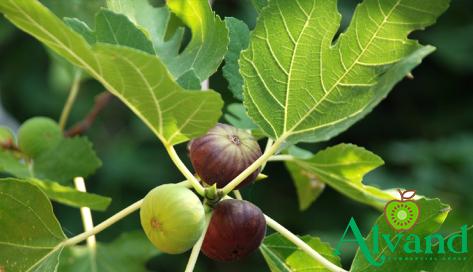
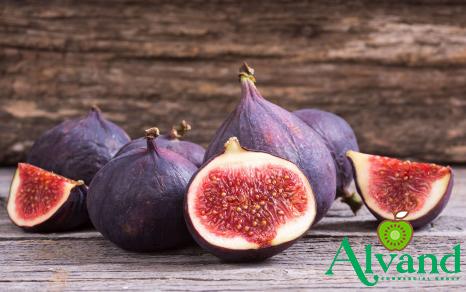
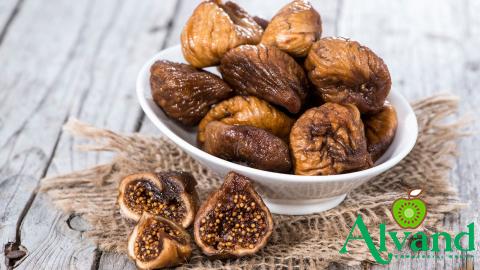
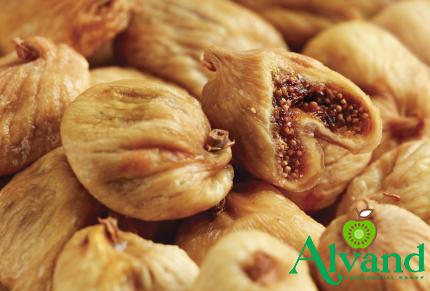
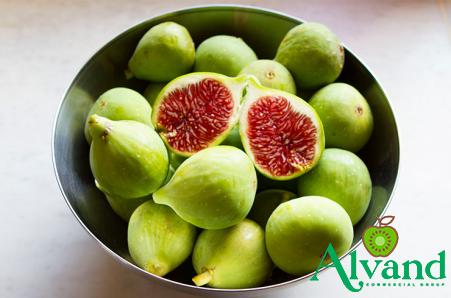
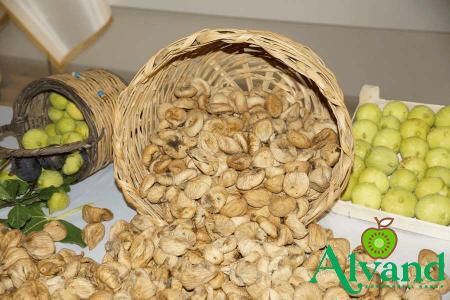
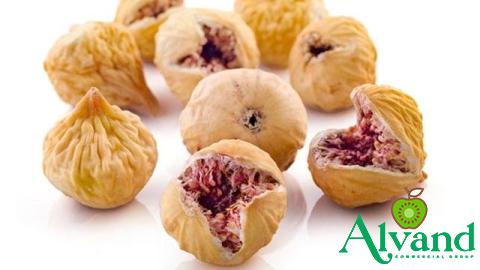
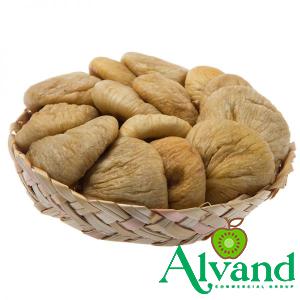
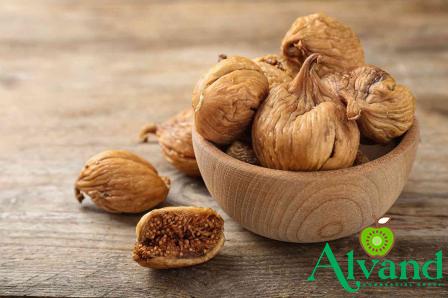
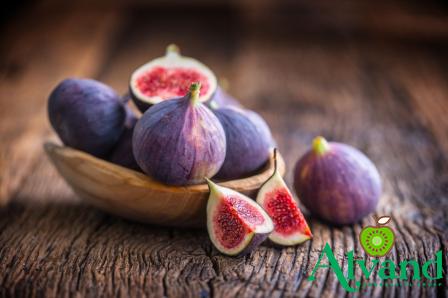
Your comment submitted.